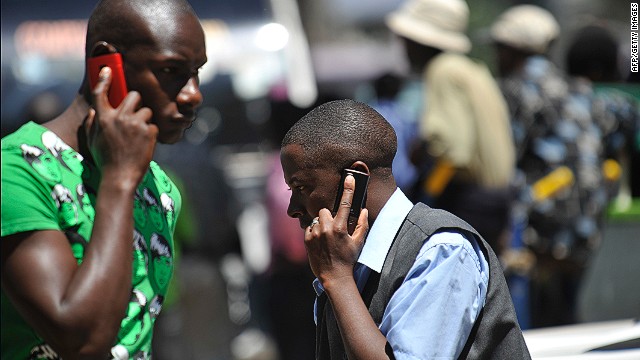In the words of former Nigerian leader, Abdusalami Abubakar, telecommunications can be exploited to lift up any industry and any community from grass to grace. His submission is seen to be playing out in Africa today. From North to South, East to West, millions of Africans are being lifted out of poverty as mobile-money services turn subsistence farmers into businesspeople. A similar dynamic drives Nigeria, Kenya and Ethiopia, regarded as the fastest-growing economy in Africa, where the gross domestic product is forecast to reach 8 percent in 2019. Borrowing costs in Ghana plummeted almost 2.5 percentage points during the past 12 months amid an unprecedented gain in GDP that’s been led by the growth of the telecoms industry.
The availability and affordability of GSM handsets virtually in all parts of Africa have provided millions of people the chance to become their own ATMs, increasing economic activity by enabling payments for food, travel, school and business. Wireless communication is driving economic growth in sub-Saharan Africa the way the railroad did in 19th-century US, accounting for almost a tenth of global mobile subscribers and a growth rate that is hard to match anywhere in the world.
The transformation is reflected in the more than 1,300 publicly-traded companies that make up corporate Africa. The value of telecommunications firms increased during the past five years to 25 percent of the total market capitalization of African companies, up from 16 percent, according to data compiled by some experts in this field. Materials and energy, the natural-resources benchmarks that defined the region since its colonial days, diminished to a combined 18 percent from 27 percent during the same period.
Nowhere is the trend more pronounced than in Ghana, where the value of products and services produced by the information and communications sector surged 239 percent since 2012, by far the fastest growth of any economic sector. Such explosive growth helped Ghana improve its creditworthiness and lower the average cost of public and private borrowing to 6.7 percent from 9.1 percent during the past 12 months. The economy continued to expand at a rate of 6 percent, and notable economists say this will grow another 6.7 percent next year, almost double its 3.5 percent rate in 2016.
Both the region and the industry are benefiting. Kenya-based Safaricom is not the biggest of the world’s telecommunications giants — its annual sales are about 3 percent of the average of the world’s 60 largest carriers. But its products and services are changing Africa, boosting its bottom line and attracting global investors. Analysts say that Safaricom’s revenues will rise 10 percent next year, more than triple the average of those 60 telecommunications giants, after a sales increase of 13 percent in 2016.
The company is more profitable than most of its 60 global peers, turning $100 of revenue into $23 of net income in 2016, twice the average. While its shares have gained 104 percent since 2014 – more than 4 times the group average – Safaricom still trades at a 33 percent discount to its global rivals on a price-to-earnings basis, according to available data.


















